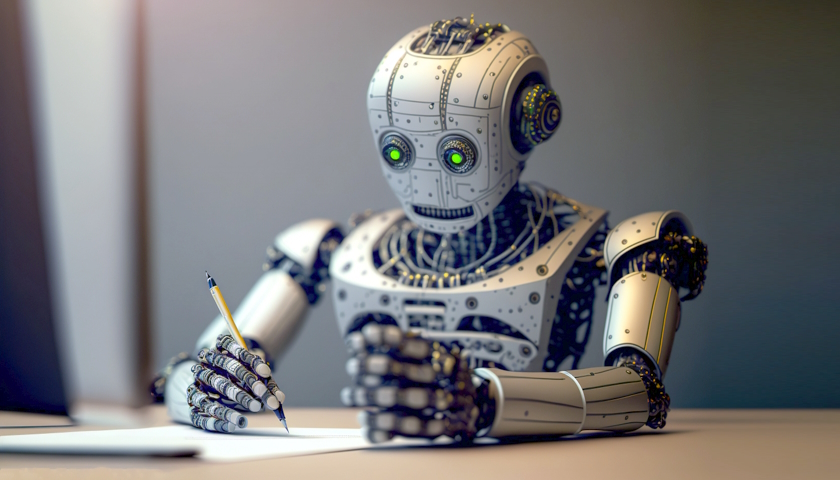Seemingly overnight, the arrival of generative AI—especially ChatGPT—has been nothing short of astounding. Its ability to auto-assemble sound sentences and functional lines of code has captivated the public since its release last year. Essentially an amplified chatbot, this subset of machine learning is a game changer in accelerating customer service, assisting marketing campaigns, providing virtual aides, and summarizing complex documentation.
Oftentimes, AI can empower and transform the way we work. However, creatives such as copywriters and marketers are concerned about the impact it will have on their livelihood. The key to overcoming this concern is to shift one’s perspective from viewing generative AI as a threat to embracing its potential benefits and learn how to create value for others.
Generative AI has the ability to produce text, audio, images and videos, providing marketers with a powerful tool to create rich media content. This technology can recommend new visual styles or multimedia formats that enhance the overall message of the content. Instead of presenting plain text on a white background, it can generate accompanying images and even create background music for short ads, capturing customer attention and enhancing engagement.
During the ideation stage, generative AI can suggest entire campaigns and produce all the necessary supporting assets to facilitate a productive brainstorming session. New angles and perspectives they produce can help marketers break out of their usual thought patterns and generate novel media hype. It also helps alleviate the burden of relying solely on the imagination of the management team, and provides a comprehensive plan for current and future marketing campaigns.
For copywriters, meeting tight deadlines can be challenging and dealing with writer’s block only adds to the pressure. With generative AI, anyone can input the necessary parameters and prompts, including tone and keywords, to allow the tool to spark new ideas and creative concepts. It’s better to have a starting point that gets the creative juice flowing rather than staring at a blank canvas. Moreover, written works can scale and repurpose to create bitesize or longer content for social media or blog posts. This allows copywriters to streamline and create more high-quality content without using added time and resources.
As generative AI supercharges creativity and pushes the boundaries of content creation, content writers will be able to enhance the overall quality of their work. With the ability to provide quick feedback and clarify ambiguities, generative AI has become an intelligent virtual assistant to banter with. Large language models like ChatGPT make perfect partners in this regard, as they can provide potential counterarguments, allowing writers to address criticisms before publishing their work. Through the power of generative AI, content writers can stretch the limits of their creativity to craft balanced, thoroughly researched pieces that resonate with their audiences.
On one side, there is a fear that generative AI dismisses creativity for efficiency. While algorithms can effectively create unique art forms, they are mainly based on pre-existing works. Unlike humans, AI cannot think outside the box and is limited by the scope of its training data. After a certain point, if AI continuously generates content without human intervention, it runs the risk of becoming repetitive and lacking originality. In contrast, humans develop emotional and personal connections to their work. Take paintings and music for instance. They are one of the most engaging mediums out there as the individuals behind them express their experiences and emotions in their work while perfecting their craft through trial, error, and ultimately, growth.
The advent of generative AI means that your role as a creative is evolving. Future content creators have to learn and master the tool’s unique language to produce the finest output possible. They are also responsible for gatekeeping, editing, and guiding AI-generated content to align with company goals, strategies and key messages. It is important to remember that businesses cannot rely exclusively on AI to achieve optimal performance; human oversight and intervention are crucial to ensuring the desired outcome.
While generative AI is still in its infancy, the hype it has garnered is well-deserved. This breakthrough technology can unlock new creative possibilities and enable content creators to achieve more than previously thought possible. Content creation may look different in the future but content creators will always be there for subjective matters such as creative thinking, quality assurance and data accuracy. After all, as humans, we have high standards. Generative AI cannot deliver them in the way we really want it, and that is absolutely fine. Leave the rest to the creatives.

